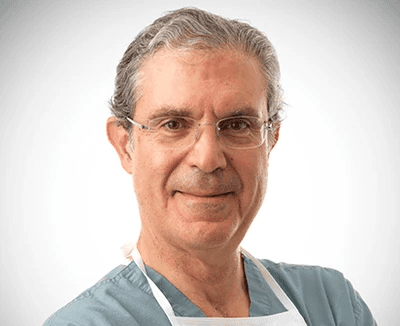Dr. Dean J. Kereiakes is the Chairman of The Christ Hospital Heart and Vascular Institute and Medical Director of its Research Institute. He has performed over 30,000 catheterization procedures, participated in more than 1,600 clinical research studies, and authored over 1,200 scientific publications. Beyond the lab and clinic, he’s a respected mentor, educator, and leader.
Considering your extensive publishing record and experience in medical research, how would you recommend a resident or fellow get involved with clinical trials or establish collaborative research with other specialists?
Find a good mentor. For me, that person was the late Dr. Kanu Chatterjee. Pursue research that augments your practice—that provides something better, special, or different from what is currently available to your patients. Ingrain research into your everyday clinical practice because this will lead to better care for your patients and will also make you a better doctor.
When it comes to treating challenging calcific plaque from an interventional perspective, what’s your go-to algorithm?
I use IVL first if the OCT CVIS (calcium volume index score) is 3-4 or if the IVUS calcium score is 2 or greater. If the IVL balloon can’t be delivered, rotational atherectomy with a 1.25- 1.5 mm burr, followed by IVL. Specialty or “modified” balloons can be effective for vessel calcification of lesser severity.
When thinking about the business of healthcare, what do you wish young physicians knew more about coming out of fellowship?
You must be more cost-of-care and value-conscious than ever before. I used to cringe at the concept of “no margin, no mission”, but it’s true. When there’s no margin, the administration will begin cutting resources at the point of care. It might lead you to lose ancillary members of your care team. Even though we are in the business of care and not hospital administration, resources will be most often cut at the point of care level and not necessarily administrative positions.
As a mentor to many, what are some important skill sets needed to be an effective leader when it comes to training other physicians or presenting on a podium?
Be constructive, stay positive, and have patience. Always be prepared in advance—don’t wait until the last minute.
Fun, Insightful Interviews with the
World's Brightest Physicians
Delivered straight to your inbox. Completely free. No spam.
You have friends and colleagues across multiple healthcare disciplines and specialties. For a young clinician, how important is networking? Are there a few tips you can pass along for building relationships more effectively?
Networking provides access to opportunities. Always do what you say you are going to do. Follow-through is essential. When you reliably keep your word, you build credibility.
Let's move on to some fun questions. When in the cath lab, if you had to choose three songs to play on repeat, what would they be?
Somewhere Over the Rainbow by Israel Kamakawiwo’ole; Don’t Stop Believin’ by Journey; Young Forever by Jay-Z.
How about movies—what are your top three favorites of all time?
Slumdog Millionaire; Apocalypse Now; Top Gun.
If you could go back to your late 20s, what one thing would you tell the younger version of yourself?
Be more conscious of the ergonomics of wearing lead (hopefully, we will all soon be “lead-free”) and radiation exposure. Define what makes you happy and “get after it!”
Lastly, are there any events, congresses, or clinical research efforts you’d like to raise awareness for?
Elixer Medical’s DynamX Bioadaptor, The Apture LA-CS shunt from Edwards, and the Virtue sirolimus angioinfusion balloon from Orchestra Biomed are all coming down the pike as breakthrough devices. Stay tuned!






